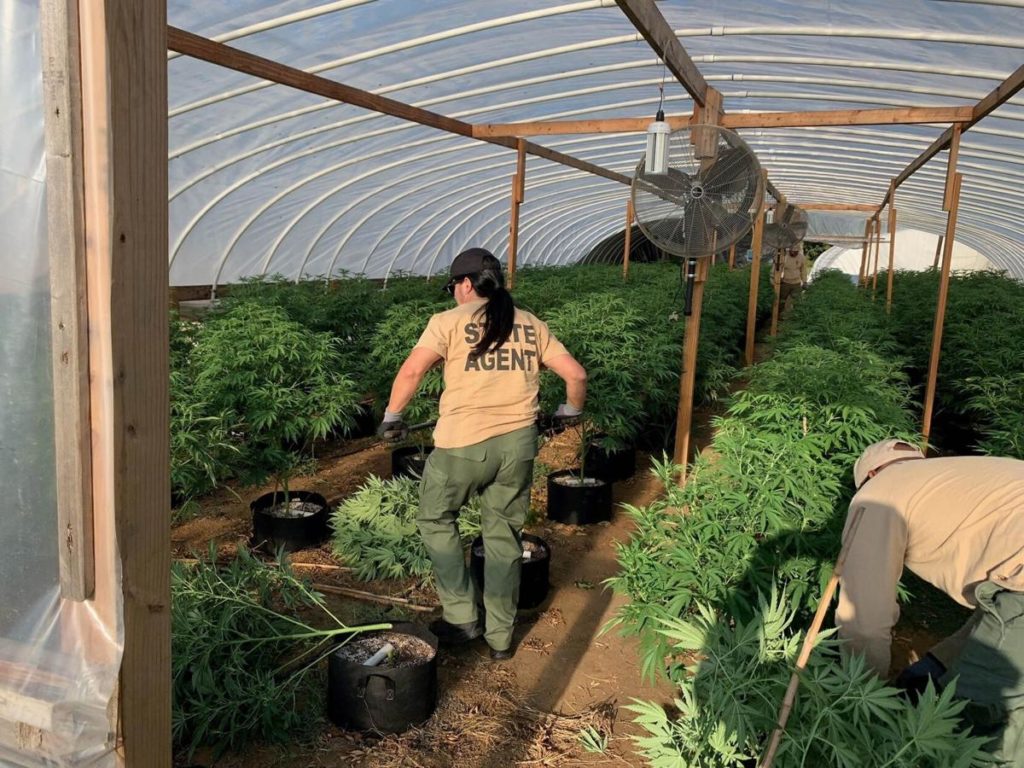When you look up Oklahoma cannabis news right now, the headlines are rampant with ‘grow seized’. Any new market goes through this stage of the conflicting areas. For Oklahoma, however, the issue is more common in their medical market. Farms and businesses that either lack proper licensing or simply are operating as if they aren’t illegal are becoming more common. Most recently, The Oklahoma Bureau of Narcotics seized almost 5,000 plants from two in particular.
A search warrant for one of the farms near Depew was served before the event occurred. The Oklahoma Medical Marijuana Authority aided in the investigation; finding that even though one of the businesses had proper licensing, it was selling cannabis out-of-state as well as on the illicit market. The raids were a result of the state’s health department and the Oklahoma Medical Marijuana Authority looking to expand compliance and enforcement efforts. Bureau spokesman, Mark Woodward, explained that licensing is where they are seeing the most crime at the moment; but, the department has been overwhelmed and stretched to their limit. As a result, illicit growers and “ghost owners” hide behind their lack of manpower.
Woodward recognizes the grey areas in the industry where businesses can get held up in the system. For the most part, however, he and many in the industry see the bad reputation that the growing criminal element gives them. These two raids are among dozens the Bureau of Narcotics and Dangerous Drugs Control have launched since April.
‘Ghost Owners’ Leads to Grow Seized in Oklahoma
In earlier stages of the investigation, deputies seized what they claim to be valued at $3.5 million. Sources say the grow seized held about $65,000 in cash and cashier’s checks. They believe them to be funds derived from illegal narcotics transactions.
Though the green and grey markets tend to have an odd relationship with the community, Oklahoma cannabis business owners are getting the brunt of both worlds. Their state industry has some of the lowest barriers of entry and yet the legal market struggles to compete against a thriving underground market. The fees and licenses associated with owning a legal cannabis business affect prices which, ultimately, affect customer volume. Cannabis business owners need help with regulation; but, fear it would negatively impact cannabis in the state if they pursued it.
“If it’s strictly a profit margin and you’re back to cartels and drug running, that’s not where we want to be.”
Kent Malave, former Oklahoma dispensary owner
In the end, you’re left at a standstill that peels the curtain back on the obstacles in a legal cannabis marketplace.
In an attempt to help further, the newest OMMA Director, Adria Berry, said in a news release that they’re “actively working to further strengthen our relationship with OBN and local law enforcement… Collaboration between OMMA Inspectors and OBN Enforcement will not only stop but, prevent, illegal marijuana activity.”
As we mentioned earlier, the state has seen a rise in illegal cannabis business relating to non-compliant licenses. As much as most of us dabble in every aspect of the industry, we do have to protect the thing that we’re lobbying for policy change in the name of. Moreover, this raises the same concerns another state has. With the introduction of social equity programs also comes those willing to use the guise for malicious intent. As compliant cannabis companies have said, it makes us look bad. Alternatively, the pursuit of compliant cannabis can very black and white. Do we risk what may come of that change or continue down a slippery slope?







